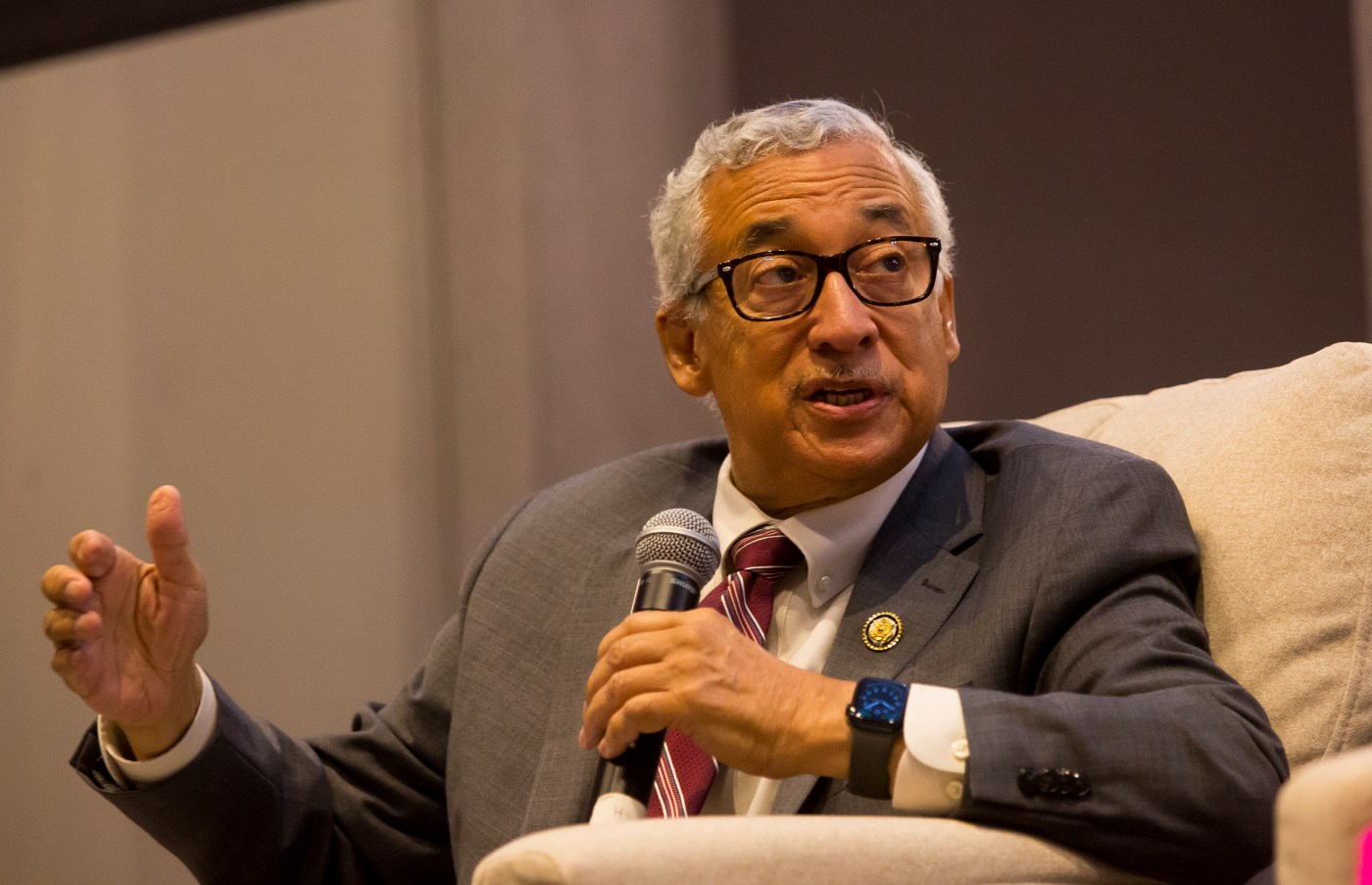Top Stories
Urgent Redistricting Debate Erupts as Congress Nears Shutdown End

UPDATE: A heated congressional forum in Norfolk on Monday spotlighted the urgent redistricting debate as the threat of a government shutdown looms. U.S. Rep. Bobby Scott and Republican Reps. Rob Wittman and Jen Kiggans clashed over the implications of partisan redistricting in Virginia.
With the government shutdown appearing to resolve, discussions quickly shifted to the contentious subject of redistricting, a process that could significantly reshape Virginia’s political landscape ahead of the 2026 midterm elections. Scott emphasized that Democrats are forced to respond to aggressive gerrymandering tactics employed by Republican-led states, particularly citing Texas as a catalyst for the push.
“We didn’t provoke it,” Scott stated, highlighting the pressure to act. “Every state that can participate, regrettably, has to participate.” He expressed concern that failure to engage could result in Democrats losing seats, saying it’s a temporary measure until 2030 when the state returns to a commission-based redistricting process.
Kiggans, representing Virginia’s 2nd district, voiced strong opposition to mid-decade redistricting, arguing it undermines the integrity of a purple state. “Two wrongs don’t make a right,” she asserted, urging Virginia to maintain its principles despite external pressures.
Wittman echoed her sentiments, warning that shifting power from the state’s redistricting commission to the General Assembly would betray the will of Virginia voters, who overwhelmingly supported the commission’s formation. “We ought to do what the voters have said they want us to do,” he emphasized.
The Virginia Redistricting Commission, comprised of 16 members, including five legislators, is currently tasked with developing the state’s legislative maps. However, a recent party-line vote in the Democrat-controlled House of Delegates, approving a constitutional amendment to allow new mid-decade maps, has intensified the debate. This proposal now heads to the 2026 General Assembly for potential voter approval.
Should the amendment pass, it could enable Democrats, who currently hold six of Virginia’s 11 U.S. House seats, to potentially gain more seats through strategic redistricting. This comes as several states, including North Carolina and Missouri, have already enacted gerrymandering plans aimed at increasing Republican representation.
Scott lamented the unfair dynamics at play, stating, “We could sit back and take it, but regrettably, there is a lesson in not responding.” He pointed out that North Carolina’s recent map changes have shifted from a balanced representation to a significant Republican advantage.
The stakes are high as the debate unfolds, with Wittman warning that if redistricting moves forward, it could lead to significant political shifts in Virginia, stating, “If this redistricting goes through, I won’t be seeing you again next year.” The implications of these decisions could reverberate through local communities and impact voter representation for years to come.
As the situation develops, all eyes will be on Virginia’s General Assembly and the upcoming referendum that could reshape the state’s political future. Stay tuned for further updates as the final decisions approach.
-

 Top Stories4 weeks ago
Top Stories4 weeks agoNew ‘Star Trek: Voyager’ Game Demo Released, Players Test Limits
-

 World4 weeks ago
World4 weeks agoGlobal Air Forces Ranked by Annual Defense Budgets in 2025
-

 World4 weeks ago
World4 weeks agoMass Production of F-35 Fighter Jet Drives Down Costs
-

 Science4 weeks ago
Science4 weeks agoTime Crystals Revolutionize Quantum Computing Potential
-

 World4 weeks ago
World4 weeks agoElectrification Challenges Demand Advanced Multiphysics Modeling
-

 Business4 weeks ago
Business4 weeks agoGold Investment Surge: Top Mutual Funds and ETF Alternatives
-

 Top Stories4 weeks ago
Top Stories4 weeks agoDirecTV to Launch AI-Driven Ads with User Likenesses in 2026
-

 Lifestyle4 weeks ago
Lifestyle4 weeks agoDiscover Reese Witherspoon’s Chic Dining Room Style for Under $25
-

 Entertainment4 weeks ago
Entertainment4 weeks agoFreeport Art Gallery Transforms Waste into Creative Masterpieces
-

 Health4 weeks ago
Health4 weeks agoGavin Newsom Critiques Trump’s Health and National Guard Plans
-

 Business4 weeks ago
Business4 weeks agoUS Government Denies Coal Lease Bid, Impacting Industry Revival Efforts
-

 Lifestyle4 weeks ago
Lifestyle4 weeks agoLia Thomas Honored with ‘Voice of Inspiration’ Award at Dodgers Event








